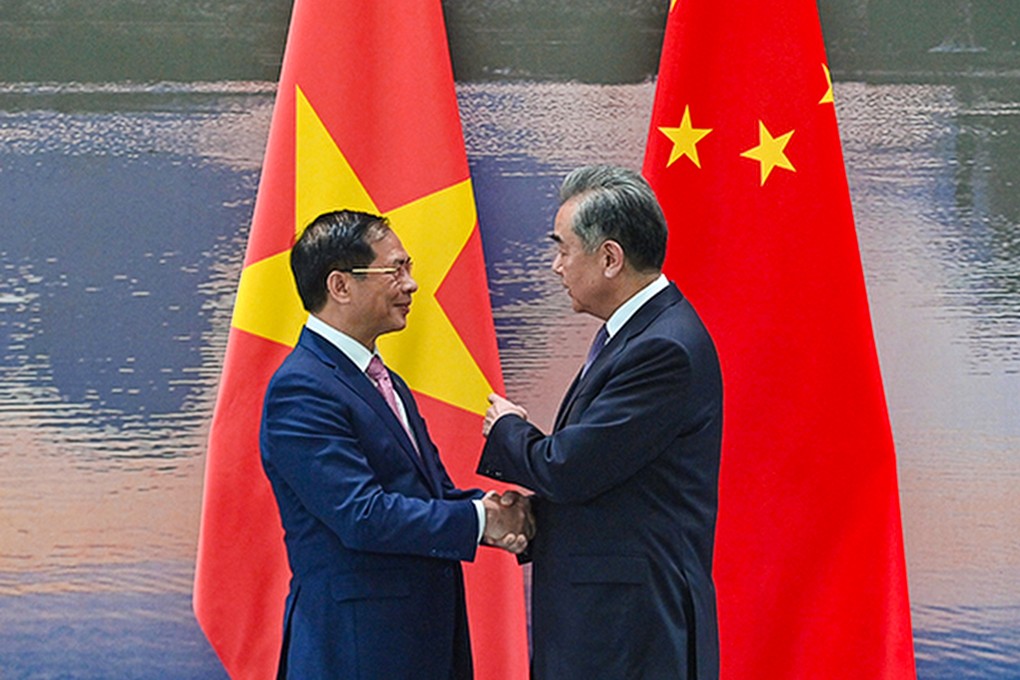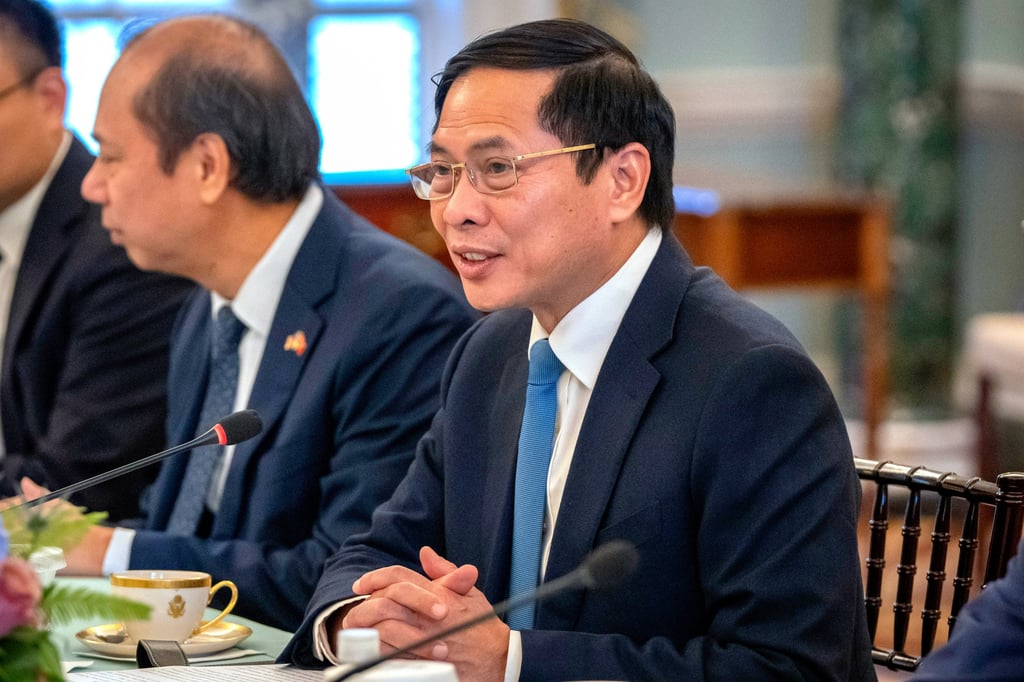South China Sea: Beijing, Hanoi try to navigate differences as territorial disputes ripple
- Top diplomats reaffirm commitment to 20-year-old conduct agreement, promise strengthened trade ties
- China’s Wang Yi says both sides should be ‘wary of creating camp confrontations in the region’

China and Vietnam were treading lightly on maritime issues during Vietnamese Foreign Minister Bui Thanh Son’s latest visit to Beijing, with the two sides reaffirming their commitment to a 20-year-old conduct agreement and promising to bolster trade ties.
At the meeting on Thursday, Wang reiterated that China considers Vietnam a priority diplomatic partner and wants to work with Vietnam to “jointly promote the solid development of the China-Vietnam community with a shared future”.
China and Vietnam should “properly manage differences, accelerate maritime cooperation and consultation on the South China Sea Code of Conduct, and resolve conflicts and differences through win-win cooperation”, Wang said, according to a statement from his ministry.

The code of conduct will be based on the Declaration on the Conduct of Parties in the East Sea/South China Sea, which was signed between China and regional states at a 2002 Asean summit in Cambodia. The terms included commitments on encouraged and restrained behaviours in the waters.
In a veiled shot at the United States, Wang also stressed that the neighbouring states should be “wary of creating camp confrontations in the region” and “cobbling together various ‘small circles’ to undermine regional peace and stability”.
